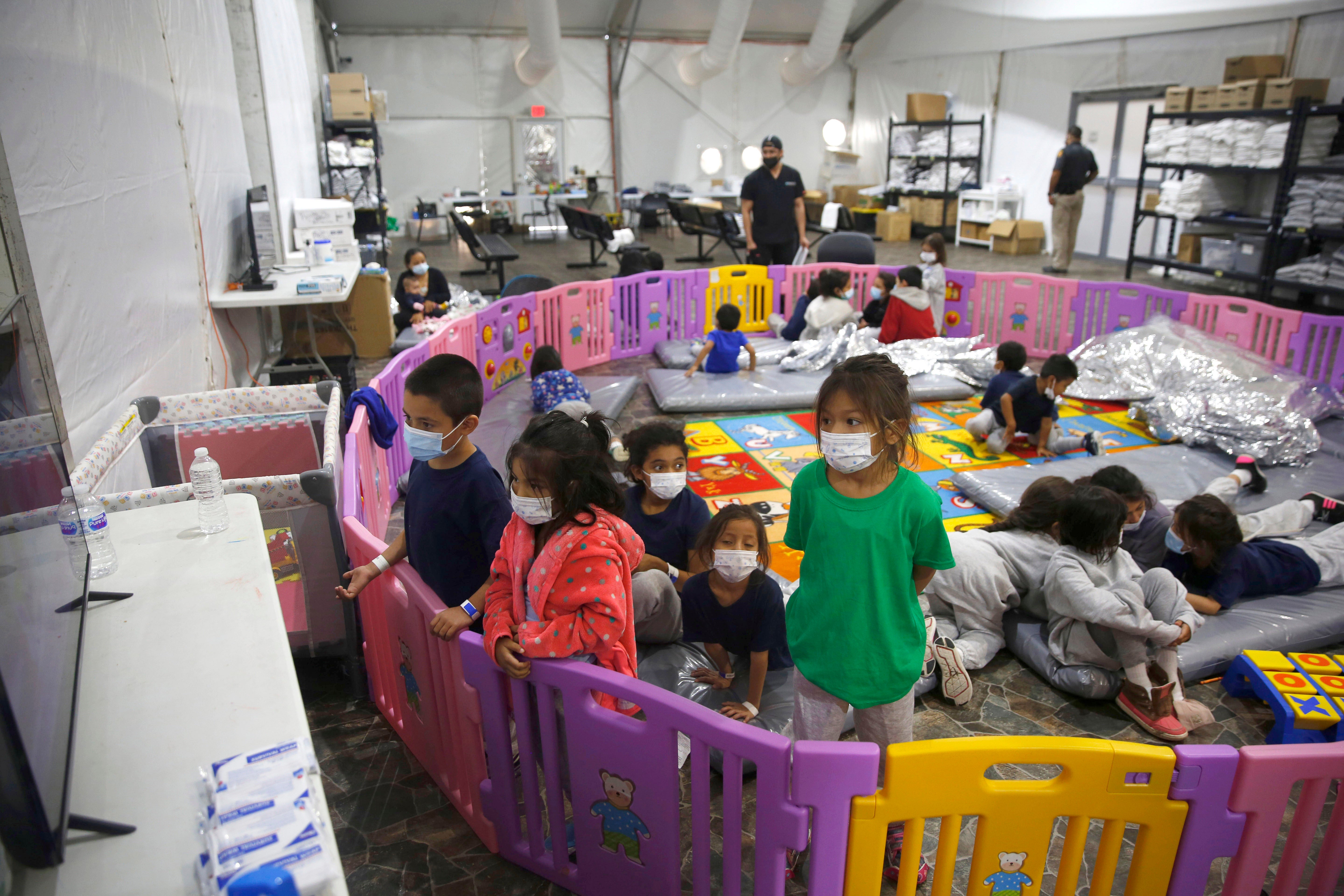ICE detention has now been referred to as ‘torture’ — the US government will surely have to pay reparations
We were present at the Inter-American Commission on Human Rights, which was highly critical of what some families at the border had endured

Your support helps us to tell the story
From reproductive rights to climate change to Big Tech, The Independent is on the ground when the story is developing. Whether it's investigating the financials of Elon Musk's pro-Trump PAC or producing our latest documentary, 'The A Word', which shines a light on the American women fighting for reproductive rights, we know how important it is to parse out the facts from the messaging.
At such a critical moment in US history, we need reporters on the ground. Your donation allows us to keep sending journalists to speak to both sides of the story.
The Independent is trusted by Americans across the entire political spectrum. And unlike many other quality news outlets, we choose not to lock Americans out of our reporting and analysis with paywalls. We believe quality journalism should be available to everyone, paid for by those who can afford it.
Your support makes all the difference.On June 28, 2021, members of the Inter-American Commission on Human Rights heard powerful testimony from Wendy Dowe, a survivor of egregious human rights violations – including medical abuse – while detained at the Irwin County Detention Center in Georgia. Dowe told the commissioners, “I suffered from physical and mental abuse that I still feel today. I’m speaking out for it stop, so the next mother and the next woman won’t have to go through the same thing.”
It was not the first time that reports of rights abuses in immigration detention have been brought to the attention of the Inter-American Commission. In fact, for more than a decade, advocates and immigrants have been raising their voices and seeking support from the international community as the United States persisted with a system of immigration detention that is inherently violative of human rights.
What distinguished the most recent hearing from those of the past was the recognition on the part of members of the Commission that the abuses taking place behind the barbed wire fences of detention centers in Georgia and across the country amount to torture, as well as cruel and inhuman treatment. And with that came the recognition that survivors of such treatment, and the family members of those who do not survive, are entitled to reparations.
Unfortunately, the United States reverted to responses that are familiar refrains from the Obama administration. We heard that the Office of Civil Rights and Civil Liberties within the Department of Homeland Security (DHS CRCL) is leading investigations, policy reforms, and other initiatives to ameliorate the conditions of detention. We heard about initiatives to review facilities with a history of rights abuses.
But we did not hear about moves on the part of this administration to dismantle the system of immigration detention itself, a system that for decades has given rise to the abuses underlying the investigations that CRCL is conducting; a system that has been disproportionately leveraged against Black and Brown people; a system that consistently ignores the United States’ obligations under international human rights law.
We did not hear why the US government, while making a pronouncement about the end of the contract for Irwin, has started to detain women instead at the deadly Stewart Detention Center, where there is a forced labor program and a host of other documented human rights violations.
We further did not hear about any steps on the part of the administration to sever ties with private prison corporations that run the vast majority of immigration detention centers, as a first step in ending the detainment of migrants altogether. How can this administration pronounce a commitment to human rights when they continue to deal with entities whose main motive is maximizing profit at the cost of causing human misery?
Why, asked one of the Commissioners, are we even talking about detention in the context of human mobility? We should not be talking about a system of detention that criminalizes migration.
The United States cannot continue to claim to be a champion for human rights and against torture in the international arena at the same time as it is subjecting migrants seeking refuge in the United States to torture. And it cannot call for accountability for human rights abusers the world over when it has failed in its most basic obligations to hold ICE and private prison corporations to account.
As members of Congress, led by Representative Rashida Tlaib and Representative Hank Johnson, said in a letter today to members of the Inter-American Commission on Human Rights: “All countries, regardless of size, power, or international standing, must respect the human rights of all people and the United States is no exception. Our government cannot be allowed to commit human rights atrocities or escape investigation, oversight, or criticism based on its powerful geopolitical position, as it so often has.”
May the administration heed the call of these members of Congress as well as the Inter-American Commission in respecting the human rights of migrants. As a first step, the US government needs to provide the reparations called for by the Inter-American Commission to Wendy Dowe and other survivors of atrocious human rights violations in ICE prisons.
Sarah Paoletti is the founding Director of the Transnational Legal Clinic at the University of Pennsylvania Carey Law School. Azadeh Shahshahani is Legal & Advocacy Director at Project South and a past president of the National Lawyers Guild; she tweets @ashahshahani
Join our commenting forum
Join thought-provoking conversations, follow other Independent readers and see their replies
Comments